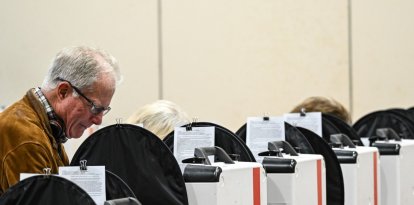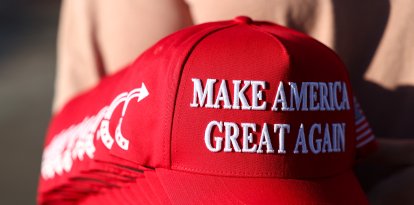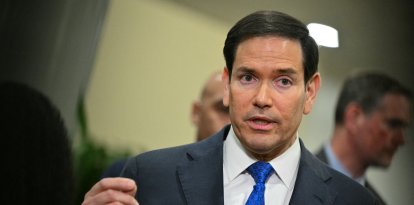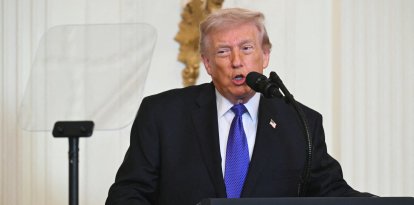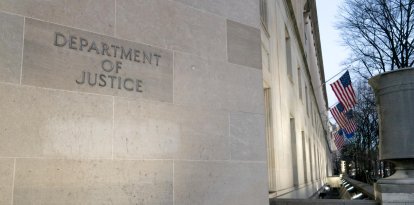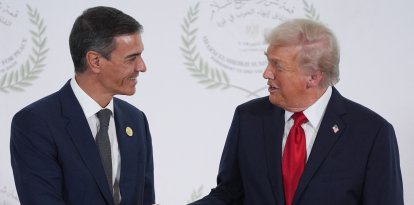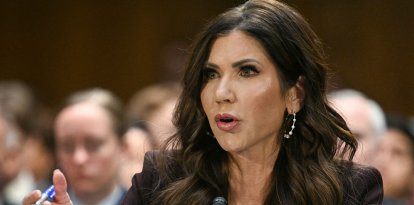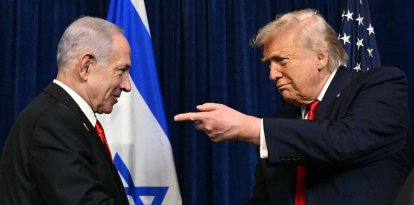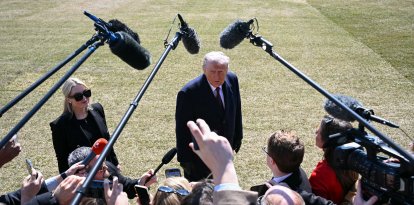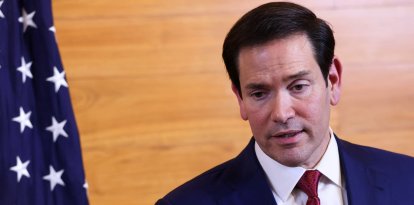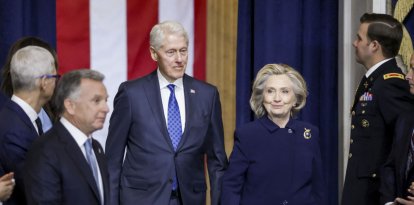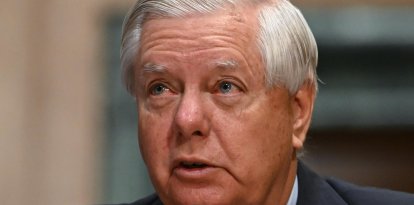Fisher v. USA: Donald Trump could benefit from the case that questions the penalties for January 6
The ruling from the country's highest court is expected to be released in mid-June, which could also impact the litigation of hundreds of other protesters who stormed the Capitol.
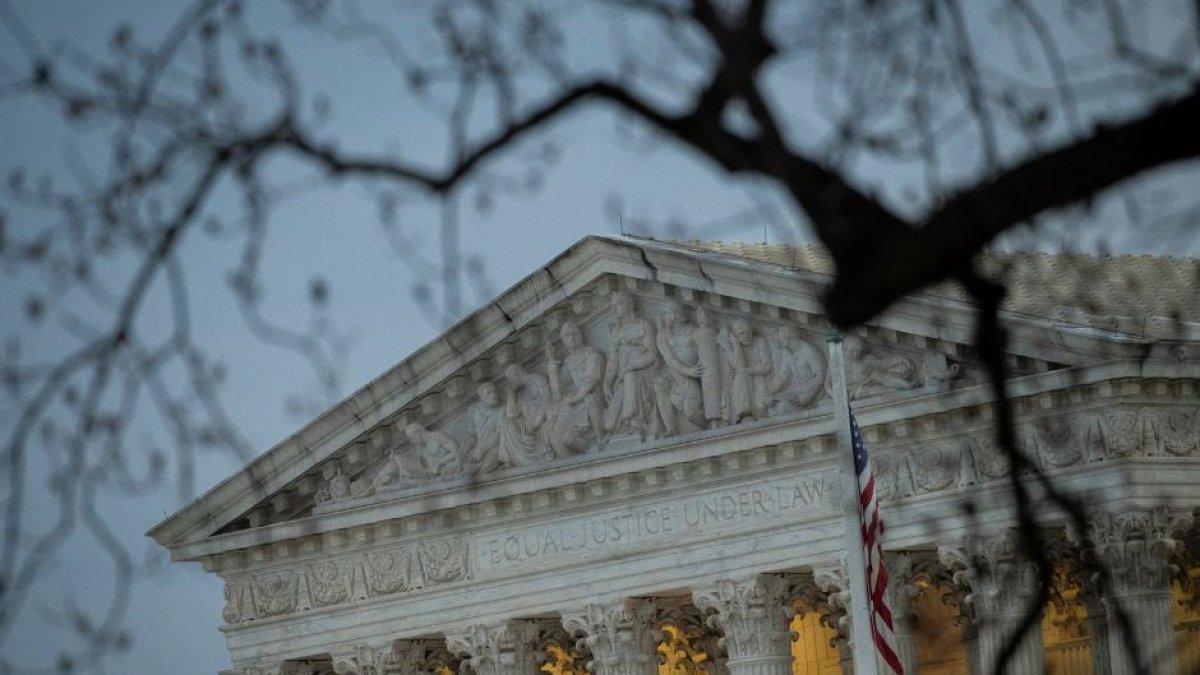
Cordon Press
The Supreme Court of the United States (SCOTUS) heard oral arguments on Tuesday in Fisher v. United States, a case concerning the January 6th events whose outcome could potentially favorably impact Donald Trump's defense in his electoral interference litigation. This is precisely due to his actions that day when Congress was attempting to certify the results of the presidential election but was interrupted by a crowd that breached the Capitol.
In the months following January 6th, authorities charged over 1,300 individuals for their involvement in the Capitol Hill breach, but 350 of them were charged under a federal statute of the Sarbanes-Oxley Act, which criminalizes obstructing or impeding an official proceeding, in this case, the joint session of Congress.
Specifically, the legislation establishes a maximum penalty of 20 years in prison for anyone who "corruptly: (1) alters, destroys, mutilates, or conceals a record, document, or other object, or attempts to do so, with the intent to impair the object's integrity or availability for use in an official proceeding; or (2) otherwise obstructs, influences, or impedes any official proceeding, or attempts to do so."
Fisher v. United States
Joseph Fisher, then a police officer from a Pennsylvania town, arrived at the Capitol an hour after the protesters breached it and lawmakers were evacuated. He also made some social media posts supporting the protesters, although his lawyers argue they were jokes or misinterpreted.
According to prosecutors, the man attacked officers guarding the Capitol entrance, managed to enter, and clashed with law enforcement riot shields. He allegedly remained inside the building for four minutes.
Since he was not considered dangerous, he was allowed to remain free until his trial, where he will formally face the aforementioned charge of obstruction of an official proceeding for allegedly using violence to prevent Congress from fulfilling its duty that day.
However, Fisher and other rioters claim that the Department of Justice (DOJ) improperly charged them with the aforementioned offense.
Indeed, despite an initial conviction, Carl Nichols, a Circuit Court judge, sided with Fisher, leading the case to reach the country's highest court.
The crux of the case seems to lie in the second section of the aforementioned statute, the "or otherwise obstructs, influences, or impedes any official proceeding, or attempts to do so." According to Jeffrey Green, Fisher's attorney, this latter part is crucial because if the Court rules in favor of the government, anyone interrupting any official act could be brought to trial.
In other words, the central discussion would be the scope of this statute. "People are going to worry about the kind of protests they engage in, even if they are peaceful because the government has this weapon," the lawyer argued.
Judges lean towards Fisher rather than the DOJ
Neil Gorsuch, Brett Kavanaugh and Samuel Alito sympathized with Green's position. They expressed concerns about granting prosecutors broad power in these cases, potentially leading the Federal government to target peaceful protesters or those who disrupt a judicial proceeding, even for a few seconds.
The more conservative judges even cited Congressman Jamaal Bowman (D-NY) as an example, who recently activated a fire alarm in the Capitol just before a vote, and, according to the DOJ's accusation, could be charged under this statute. They also mentioned the possibility of the government reaching out to those who disrupted confirmation hearings for some of the Court's judges to illustrate what could result from a ruling in favor of the government.
"What if five people in today's audience stood up, interrupted, and shouted that the defendants of January 6 were insurgents who should go to jail?" Alito asked during oral arguments.
"Would sitting down interrupting a trial or access to a federal court qualify? Would an interjector in today's audience or State of the Union address qualify? Would activating a fire alarm before a vote qualify for 20 years in federal prison?" Gorsuch inquired.
On the other hand, Amy Coney Barrett and Ketanji Brown Jackson seemed more interested in finding a way to limit the DOJ's accusations without the ruling collapsing all similar cases from January 6th. In other words, Elizabeth Prelogar, representing the Department of Justice, seemed to have the support of Elena Kagan and Sonia Sotomayor alone.
According to Prelogar, the Department of Justice decides whom to charge with this crime based on "intent," something Green described as very difficult to prove.
How could the ruling favor Trump?
The former president and presumed Republican nominee for 2024 faces multiple charges in the electoral interference case from January 6th, which is currently on a temporary pause until the Supreme Court decides whether the accused had presidential immunity.
However, if the country's highest court rules in favor of Fisher, and depending on the scope of the ruling, it could lead to the dismissal of charges against the Republican, who faces the same charge as the Pennsylvania man.
Since the allegations have different implications in the cases of Fisher and Trump, the Court's ruling could dismiss charges against many of the January 6th protesters but still maintain the case against the former president.
The ruling is expected to be known by mid-June.













